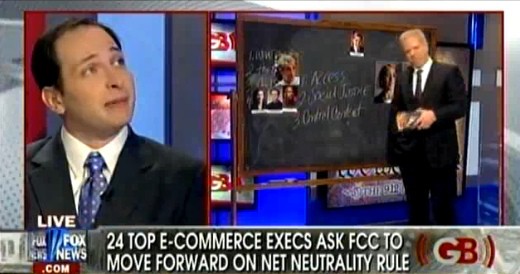 Consumer Reports has unveiled its second annual Naughty & Nice Holiday List, a compilation of companies who deliver more than they promise, or stick their customers with a lump of customer service coal.
Consumer Reports has unveiled its second annual Naughty & Nice Holiday List, a compilation of companies who deliver more than they promise, or stick their customers with a lump of customer service coal.
Among telecommunications providers, the consumer magazine is slamming Verizon Wireless for its gouge-you-now, tell-you-about-it-later “early warning system” that is supposed to notify customers before they exceed their arbitrary data plan limits. Verizon can’t let a little customer service get in the way of making a ton of money on extortionist overlimit fees for customers who dare to use too much:
The company tells the Federal Communications Commission that it voluntarily provides ample warning to customers who seem about to exceed their monthly allotment of minutes, messages, or data, so a mandatory rule that would make it issue such alerts isn’t necessary. But we caught Verizon doing — and admitting to — something else. Two staffers who are Verizon customers recently were notified only after they went over their allotment, at which time the company tried to upsell them to a pricier plan. When contacted by our reporter, a company spokesman acknowledged that its voluntary alert system isn’t always reliable. But it now looks like better protection from “bill shock” is on its way. Under a mid-October deal with the FCC, members of CTIA – The Wireless Association, a trade group representing 97 percent of wireless carriers, agreed to begin issuing alerts of impending overages. Full implementation of the alert system could take until April 2013.
That represents at least a year-long Money Party for Big Red, which began enforcing its idea of an “appropriate amount” of usage earlier this year. Green, silver and gold are not just for the holidays at VZW.
SiriusXM‘s customer service don’t-care-bears also come in for a spanking. On top of hold times that can rival a typical workday, customers who don’t trust the satellite radio company with their credit card number pay a price for their wariness – a $2 monthly bill fee:
If a subscriber wants to receive a bill in the mail and pay by check (the old-fashioned way), he or she will get socked with a $2 surcharge every month. The penalty can be avoided if the customer gives Sirius credit-card information and elects to be billed electronically on a recurring basis.
While AT&T breathes a sigh of relief they are not on the naughty list this year, Cablevision is pleasantly surprised to find themselves with a nice stocking stuffer courtesy of CR.
Telecom companies are a frequent target of consumer displeasure, but this industry giant offers more to subscribers who sign up for its Optimum Triple Play – Internet, phone, and TV service – free movie tickets on Tuesdays and deeply discounted tickets on other days. Customers who sign up for Cablevision’s Optimum Rewards program (it’s free) also get perks like discounted popcorn and soda at participating theaters.
Considering popcorn and soda purchases at most theaters now warrant an accompanying easy financing credit application, that’s no snowjob.
[flv width=”476″ height=”288″]http://www.phillipdampier.com/video/Consumer Reports American Apparel is naughty American Express is nice in latest Consumer Reports list 11-21-11.flv[/flv]
Watch Consumer Reports’ 2011 Naughty & Nice Holiday List of the good, bad, indifferent, and just plain lousy companies that want a piece of your holiday action. (2 minutes)


 Subscribe
Subscribe







